WHO KNOWS: Mr. Harvey Goes Into The Dalek

Your mileage may vary when it comes to the Daleks.
Certainly there is a percentage of the fans, a pretty sizable one in fact, who think that the notorious pepperpots are overused, and an argument can be made that they have lost their fear factor, after episodes like “Victory of the Daleks” and the “Of The Doctor” trilogy. Originally meant to be a Nazi analogue, they have run into the same problem that the Nazis have in pop culture: How many new stories can you tell?
The best episodes involving the classic Doctor Who villains are the ones where the writers try to find a new way to look at them and what makes them scary, like “Genesis of the Daleks”, “Dalek”, “The Asylum of the Daleks”, and now, “Into the Dalek”. The first of those took the Fourth Doctor back to the very origins of the Daleks, and introduced their creator, Davros, and showed us both that they were created to be evil, and that the Doctor himself bears some responsibility for their reign of terror throughout the Universe. “Dalek” showed us just how dangerous one single Dalek could be, and did more to invigorate them than nearly any other episode, as well as laid bare the anger and pain and hatred the Doctor has coiled up inside him. And “Asylum”, with its flaws, gave us insane Daleks, the nightmare of Oswin being forcibly turned into a Dalek, and the realization that the Daleks admire the Doctor for the beauty of his hatred for them.
“Into the Dalek”, which cheerfully acknowledges its debt to Fantastic Voyage and The Fourth Doctor’s “The Invisible Enemy”, takes what could be a pretty silly concept and makes it into an examination of both the new Doctor and his relationship with his oldest enemies. It’s best not to think about how impractical shrinking down a surgeon to go inside a patient is, because despite the premise, which is really just an excuse to give fans a view of the Daleks they haven’t had before, and I mean visual view, the entire episode is about relationships.
Journey with her brother, her uncle, and the Doctor. The Doctor and Clara. Clara and Danny Pink. The Doctor and the Daleks. The Doctor and himself.
“Am I a good man?” That’s the question the Doctor asks Clara here, and it’s the question the Doctor has been asking himself his whole life. Yes, we have Peter Capaldi’s “darker” Doctor, but as the Eleventh Doctor points out in “A Good Man Goes to War”, good men don’t need rules, and the Doctor has many. The First Doctor lied regularly and considered murder on at least one occasion and, remember, that’s when the show was really considered to be children’s programming. All of the Doctor’s incarnations have had dark moments, some being very dark indeed, but in the end, it is as Clara says when she tells him that what matters is that he’s trying to be a good man. The Doctor is at war with himself in many ways… he knows the violence inside him is there, and the hatred, and the potential for not being a good man, but he hopes that there is more. That hope, that promise he made to be “never cruel nor cowardly” comes from his first meeting with the Daleks, where he saw that no matter what he was, the Daleks were far worse, and they had to be fought.
That decision led ultimately to the last days of the Time War, and the War Doctor’s decision to kill both the Daleks and the Time Lords to save the universe. The hatred that he feels for the Daleks is rooted not only in their monstrous behavior, but in that decision he felt forced to make. That he knows that he chose to try and save Gallifrey instead can’t wipe away that hatred, because that’s not how emotions work. And here it costs him. Of course his goal is almost impossible when you think about it, since Daleks are literally born hating, and changing that ingrained nature isn’t something that can be easily done, if at all, but the Doctor tries, because he hopes. Frankly, for all his disappointment, the Doctor accomplished something quite extraordinary here: He created a new kind of Dalek, one who hates the Daleks more than everything else it’s been bred to hate.
And then there’s the Doctor and Clara. This second episode gives us more of this Clara Oswald, free from the Saga of the Impossible Girl, who is, it seems, the Doctor’s conscience and connection to those around him. His “carer”, who “cares so I don’t have to.” This really has freed Jenna Coleman up to make Clara be something more than a plot device, and here she serves both as the Doctor’s apologist, and also the person who can anchor him in a way it seems he clearly needs. There’s a hint of obsession here with how the Doctor wants to save and change Rusty, and Clara is there to keep the Doctor aware that his decisions have an impact outside of his plans and himself. The slap, while perhaps justified, seemed a little out of character, but it didn’t bother me. Clara is angry and afraid, and she can see that the Doctor has a part of himself that is satisfied by being right about the Daleks being seemingly incapable of change. The Doctor does like to be right after all, but being right means death, and even if the solution that the Doctor comes up with is a little bit handwavium, there is good work here by Coleman’s Clara in bringing him to the point where he tries to reach Rusty in a new way.
Clara also gets to do the meet-cute thing with Danny Pink, and I confess, I really enjoyed this part of the story. There is a natural chemistry between Jenna Coleman and Samuel Anderson, and some fun banter that plays well both for laughs and for the real beginnings of a relationship. We know that Danny is going to be featured throughout the season, and it looks like we’re going to see the relationship between the two unfold along the way. Of course, explaining the Doctor to Danny at some point may have some challenges, but we’re also meeting someone here who has his own secrets, and clearly ones with some painful aspects. An interesting thought arises as well: Danny Pink is a soldier who left the service to become a Math teacher, and so was Brigadier Alastair Lethbridge-Stewart.
And then there’s Journey Blue and the “I just wish you hadn’t been a soldier.” I’ve seen several, quite a lot actually, comments out in the web about fans being upset about the Doctor’s behavior towards Journey specifically, and his overall attitude towards the soldiers throughout the episode. Quite a few “it’s insulting to the military”, “it’s out of character”, and the like.
I didn’t see it that way.
Let me say that Zawe Ashton was excellent here, and with a name like Journey Blue, c’mon… she has to come back. Journey? Blue? Yeah, she has to come back. It’s her relationship to her dying brother that kicks off the episode, as she desperately tries to save them both, begging the crew of the Aristotle for help, even as she knows that if they do, they’ll be revealing their location to the Daleks. As a soldier, she knows this is something that can’t be allowed to happen, but as a sister, she wants to save her brother, even as it’s clear that he’s dying beside her. Her reaction to being saved is less about herself than mourning her brother and returning to her only remaining family. The dynamic between Journey and her uncle, Colonel Morgan Blue, played with style and intensity by the always great Michael Smiley (Spaced, Luther) is one of love that is restrained by the realities of war and the military structure, but when Blue tells the Doctor that he’s “personally grateful” that Journey was saved, there’s clearly the bonds of family under his terse delivery.
It’s Colonel Blue that we see, along with his soldiers, fighting the Daleks when they board the ship, and here the production team, and especially director Ben Wheatley and Director of Photography Magni Agusston, do more than we’ve seen in a long time to show the Daleks as a formidable enemy. Yes, there were some good moments of battle in “The Day of the Doctor”, but here, the Daleks are pretty much an unstoppable wave. The way the battle is shot, it’s clear that they are going to win, and the only reason they don’t wipe out the humans is the timely arrival of Rusty. The soldiers are clearly fighting a hopeless battle, but they keep fighting, hoping to take their as many of the enemy with them. In fact, all the soldiers throughout the episode are shown as being professional, efficient, and in the case of Gretchen, self-sacrificing when it’s the only way to save others. It’s not the audience who is seeing these men and women in a negative light.
I think it has something to do with being a fan of the show from the Original Series. This kind of Doctor – sarcastic, occasionally unkind, not terribly cuddly – this is more common for the character than not. The move to evoke some of the Original Series that the Doctor Who team is clearly going for is also bringing back, clearly, the rather prickly nature of the Doctor’s relationship with the Military. Yes, the Doctor was friends, good friends in fact, with Brigadier Alistair Lethbridge-Stewart, Mike Yates and Sgt. Benton in his UNIT days. The Third and Fourth Doctors were around the military all the time, and yet it seems fans are forgetting, or in the case of the folks who never really saw the Original Series, how much the Doctor and the Brigadier were in conflict over how to handle the various alien incursions they encountered. The Brigadier often went with the “shoot first” school of tactics, with the Doctor repeatedly criticizing the rigidness of the military outlook. This didn’t stop those strong friendships for forming and lasting for years, but the idea that the Doctor’s relationship to the military has been a generally friendly one is more New Series focused than anything else.
And one must consider how these soldiers act towards the Doctor, specifically. He rescues Journey from certain death, and she pulls a gun on him. Her uncle thanks the Doctor for saving her, and orders him shot. In context, and maybe that’s the word we need to be focusing on here a lot, there isn’t any real reason for the Doctor to feel all that friendly towards these particular soldiers, no matter how much their behavior is dictated by the circumstances of their ongoing war with the Daleks. But then, listen to how the Doctor tells Gretchen that he will do “something amazing” in her memory.
There’s also Danny Pink to consider. An ex-soldier, clearly traumatized by some event or events during his service, Danny serves as a clear contrast to the kind of soldier that the Doctor is clearly not a fan of. Danny doesn’t think that killing solves everything, and in his interactions with Clara, it’s clear that he’s afraid that his being a soldier could be something she would have a problem with. Obviously there’s a reason for that fear, even if we don’t yet know what it is, and it’s also obvious that the attitude the Doctor is displaying here is going to come in conflict with the reality that Danny Pink represents. This is foreshadowing folks… it’s the setup for a scene where the Doctor and Danny go head to head, possibly over the future of Clara.
And then there’s the final, and to my mind, the most important piece that people seem to be overlooking. I saw it in that final exchanges between the Doctor and Rusty and between Journey and the Doctor where we got these critical pieces of dialogue:
Rusty: Victory is yours, but it does not please you.
The Doctor: You looked inside me and saw hatred. That’s no victory. Victory would have been a good Dalek.
Rusty: I am not a good Dalek. You… are a good Dalek.
and:
Journey: Doctor! Take me with you.
The Doctor: I think you’re probably nice. Underneath it all I think you’re kind, and definitely brave. I just wish you hadn’t been a soldier.
As the Doctor told Journey earlier, she can’t be a better soldier than the Daleks, because they are the perfect soldiers. They see beauty in hatred, like the hatred that the Doctor just can’t set aside. Davros, remember, told the Tenth Doctor in “Journey’s End” (Hmmm) that the Doctor has a history of turning people into weapons and destroying worlds. Here, the Doctor never fires a gun, but he focuses on his “mission” to the exclusion of all else, not even trying to save Ross, knowing that there are casualties and that some people can’t be saved…
In short, the reason that the Doctor didn’t want a soldier on the TARDIS is that there’s already one on it; one who is very aware of all the blood on his hands.
The Doctor.
![]()

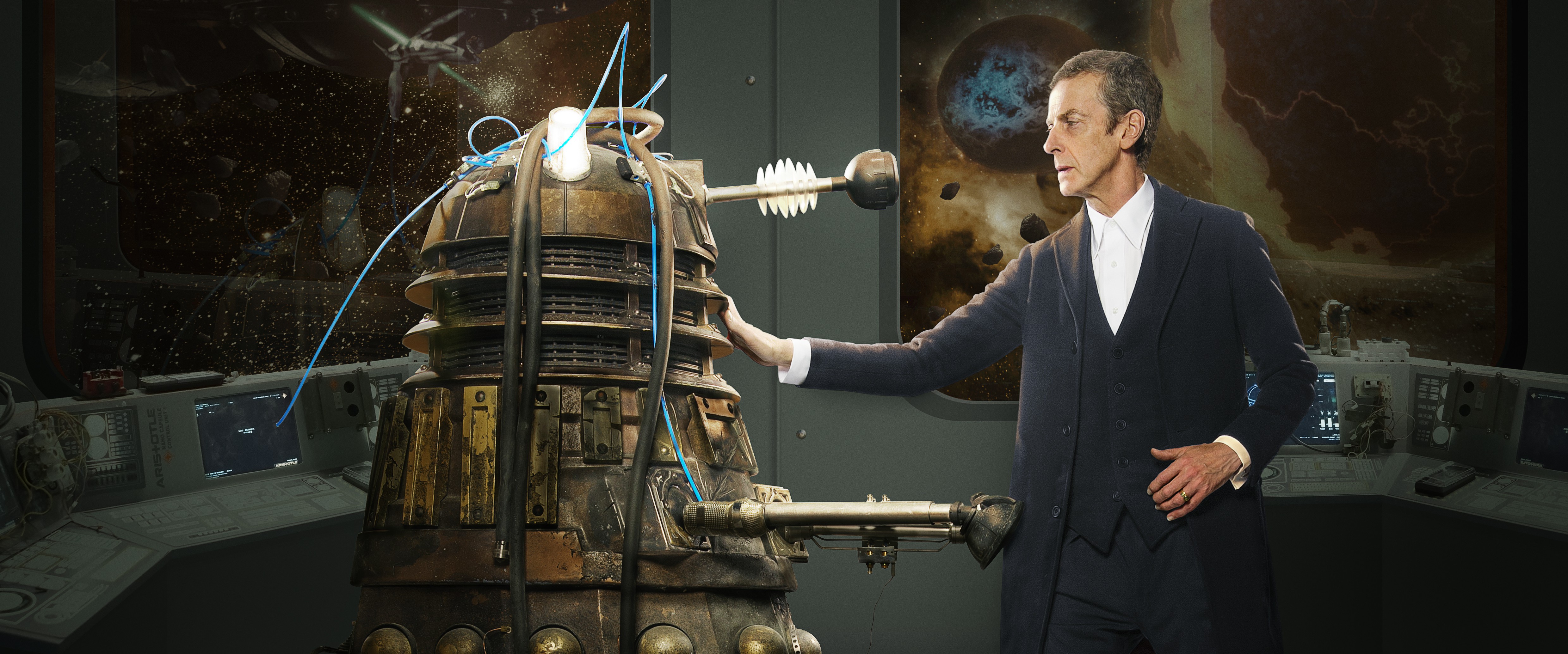
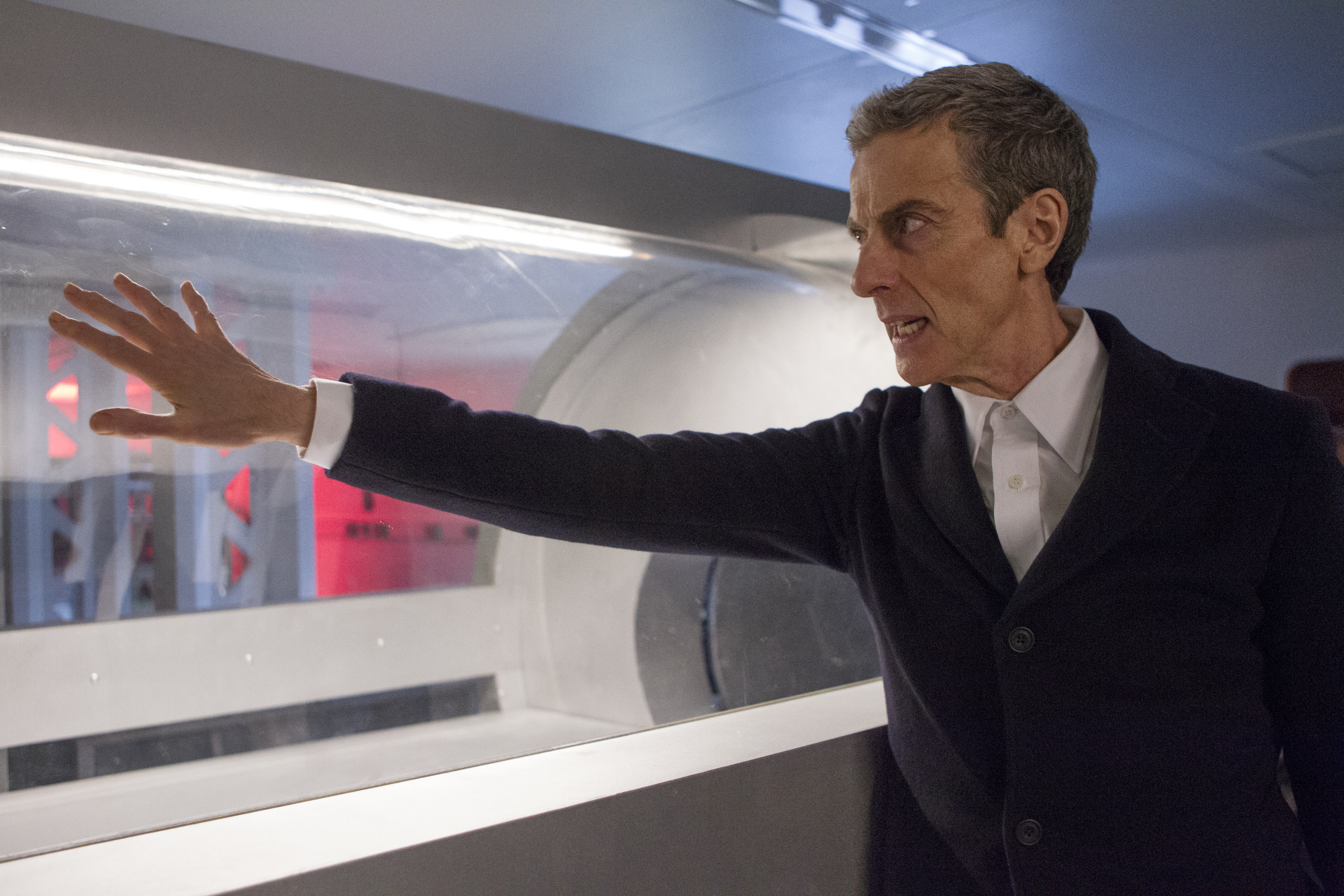
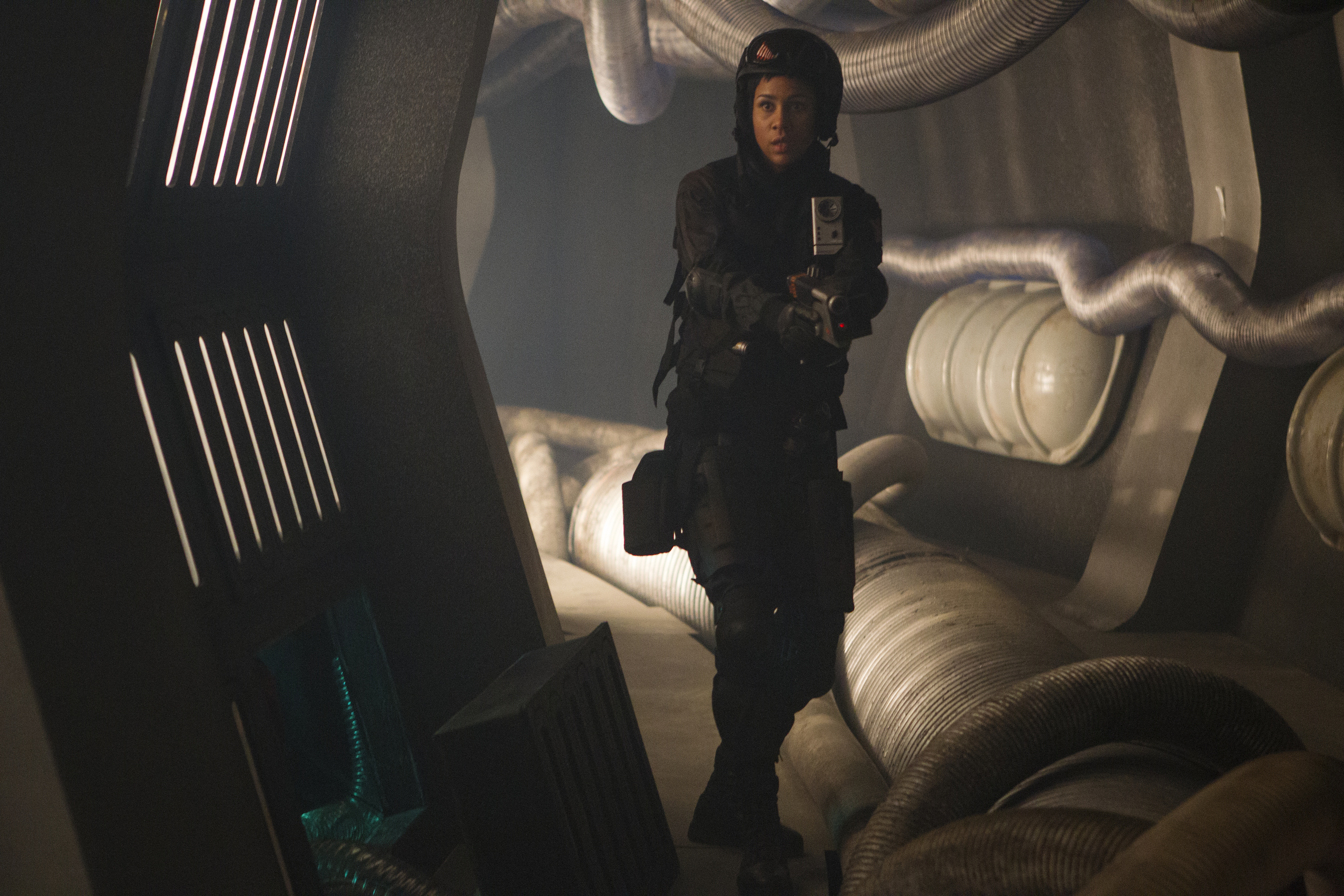
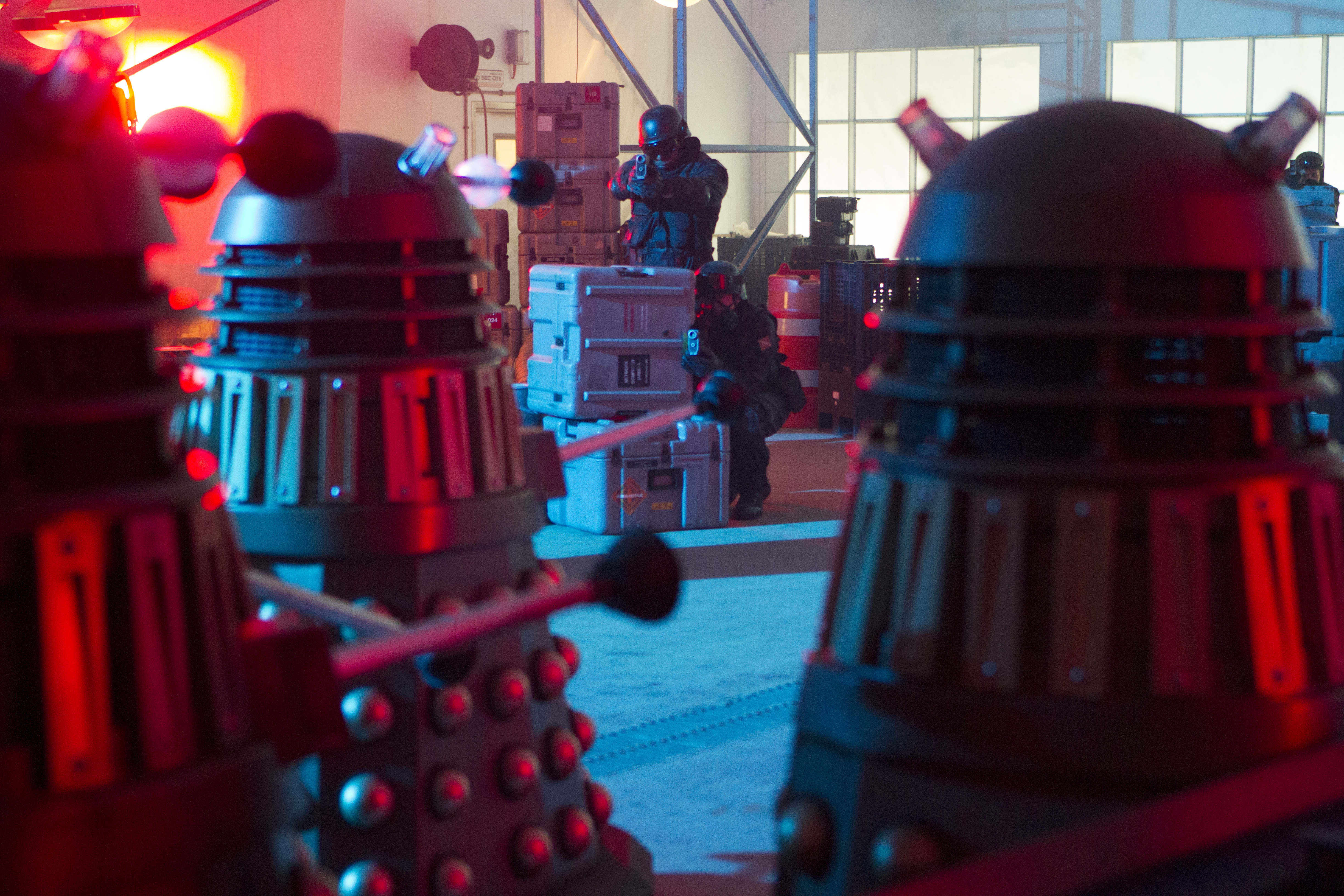
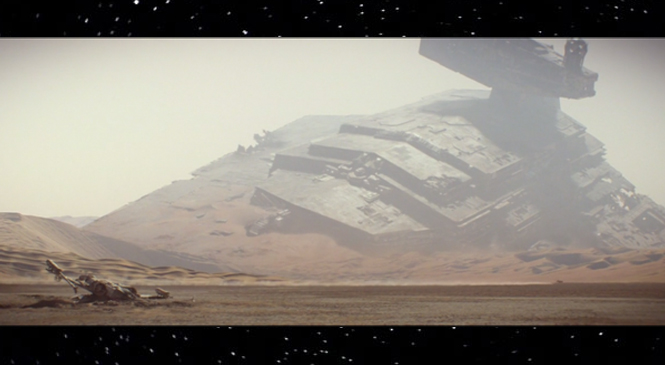
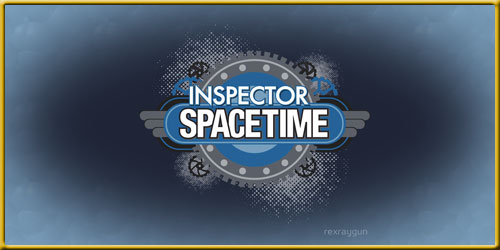
I’ve been re-watching the New Series and at the end of “Dalek”, the dalek tells the Ninth Doctor “You would make a good Dalek.” I feel there is something more to the Daleks or the Doctor’s connection to them that might be revealed. It can’t be coincidence that twice now the Daleks have pointed out the similarities between them and the Doctor. Or maybe it’s just to point out the Doctor hates the Daleks because they are a physical manifestation of the part of himself he hates the most. Guess we’ll see..